More Money For Fish

Raising Awareness for Cost Effective Filtration
With the launch of our campaign #MoreMoneyForFish this summer, we wanted to raise awareness for cost-effective filtration, so hobbyists have more money left to spend on buying fish and looking after them well.
Choosing a high-performance and reliable filter also means that you will have more time to enjoy your fish instead of having to deal with repairs or buying expensive replacement parts.
![]()
1. Why own a Koi Pond in the first place?
Owning a Koi pond can be a rewarding experience as Koi fish are known for their vibrant colours and graceful movements. Watching Koi gracefully swimming in the pond can be therapeutic and calming. The serene environment and gentle sounds of water can provide stress relief and relaxation, promoting a sense of tranquillity.
Owning a Koi pond requires responsible fishkeeping practices. Koi have specific care requirements, and the pond must be properly maintained to ensure the health and well-being of the fish. Regular water testing, appropriate filtration, and a balanced diet are crucial for the success of a Koi pond.
Koi ponds can be designed for low maintenance, especially if they incorporate modern and effective filtration systems which can make them easier to care for.

I want a pond, where do I start?
Researching, planning and budgeting are crucial steps when considering the construction and maintenance of a Koi pond. They play a significant role in ensuring the success and long-term viability of the pond.
Proper planning ensures that the Koi pond meets the necessary requirements for the health and well-being of the fish. And budgeting helps you estimate the overall cost of building and maintaining the Koi pond as well as allocating funds for different components such as construction materials, pond filtration equipment, Koi fish, running costs and ongoing maintenance expenses.
This prevents overspending and helps you make informed decisions based on your financial capacity.
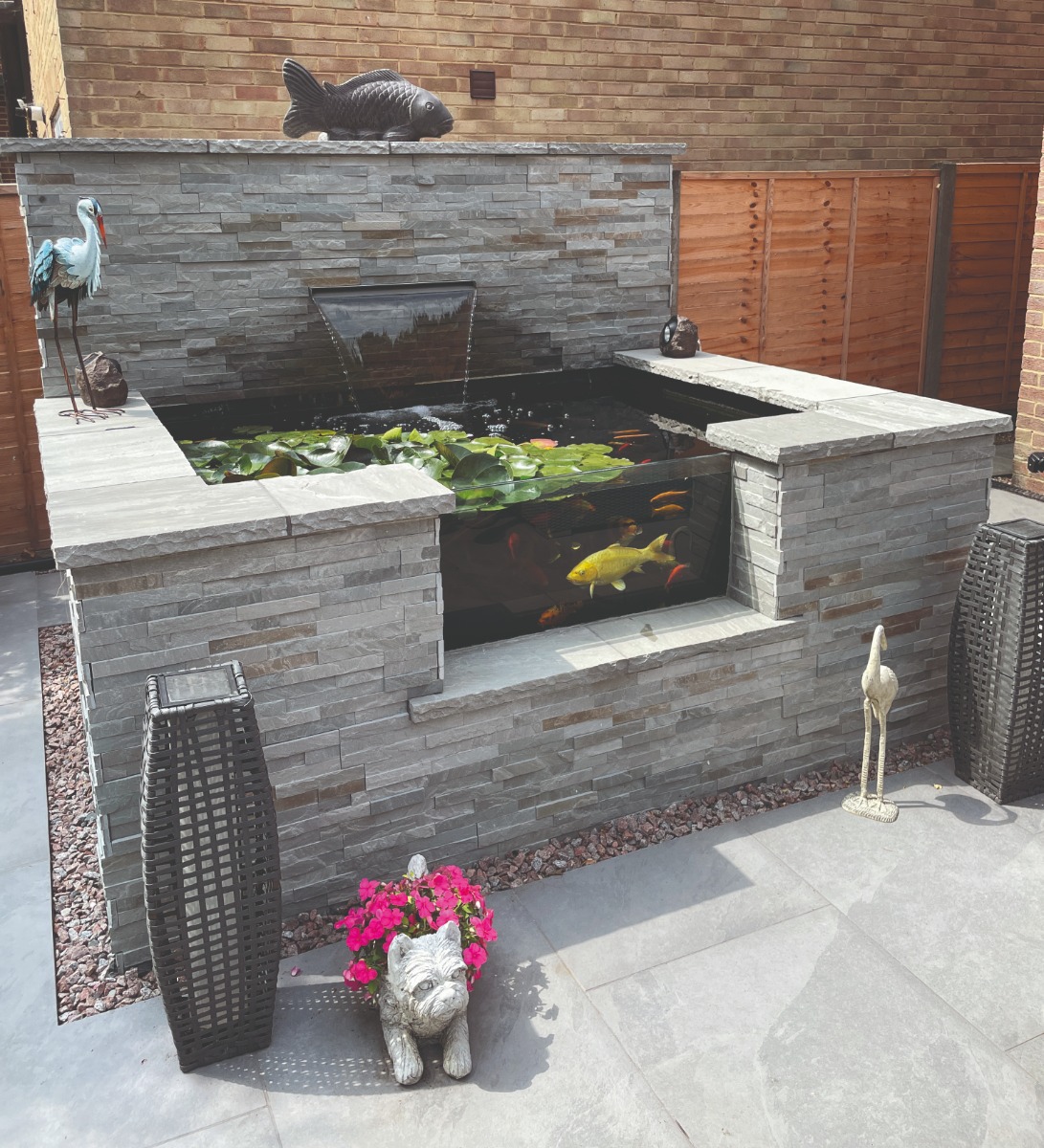
2. Which filter to choose?
Technological advancement in the hobby during the past decade means that today fish keepers have an abundance of options to choose from when considering a filter for their pond: multi-bay filters, pressure filters, Nexus or drum filters to name a few.
Nexus and Drum filters are two popular options due to their effectiveness in maintaining water quality and clarity in a pond and so we wanted to delve into these two options for our readers in the context of our campaign #MoreMoneyForFish.
How do they work in a nutshell?
A drum filter is a type of mechanical filter that uses a rotating drum with a fine screen to separate solid waste from the water. As water passes through the drum, the waste particles are trapped on the filter's surface, and clean water flows out. These can be purchased with a bio media chamber for complete biological filtration.
Drum filters have gained popularity due to their filtration capacity and automatic cleaning mechanism. While drum filters offer many advantages, they may not be suitable for all Koi pond owners, primarily due to their initial cost, which is in most cases higher compared to other filtration systems.
The Nexus filter is a biological and mechanical filter system in one. Water from the pond enters the Nexus+ via the inlet into the inner chamber which works as a vortex allowing larger solids to settle out. The water then passes through the Eazy filter, where the finer particles are removed at the mechanical stage of filtration, thanks to the static bed of K1 Micro filter media.
The mechanically clean water then passes to the outside chamber of the Nexus+ where the K+Media Moving Bed is located for biological treatment prior to being returned to the pond. By combining both mechanical and biological filtration in one unit, the Nexus pond filter offers an efficient and comprehensive solution for maintaining water clarity and quality in Koi ponds and water gardens. Read more: https://evolutionaqua.com/nexus-plus-filtration
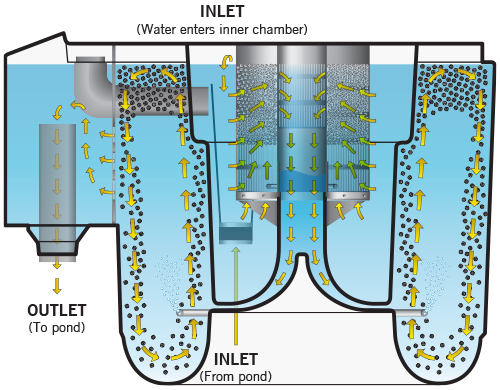
If they are both effective, which one do I choose?
In the main both filtration options, Nexus and Drum filters, are effective filtration solutions and provided they are set up right, will ensure your pond water is clear and healthy for your fish to prosper.
But that is where the similarity ends, because as well as being more expensive to buy, drum filters can also cost more to run and service due to their complex design. Let’s look at these differences in more detail starting with upfront cost.
3. Upfront cost, an important consideration
Drum filters are available from different manufacturers and dealers under their own brand and a quick search on the internet will show you +20 brands of drums available for you to buy in the UK, ranging from £2.5K up to £14K for your typical pond sizes.
For the purpose of cost comparison with a Nexus, we have selected a drum model from a leading manufacturer offering good performance with an appropriate level of support (warranty, resources and spares) and available from a wide network of dealers, so it is a close like-for-like comparison.
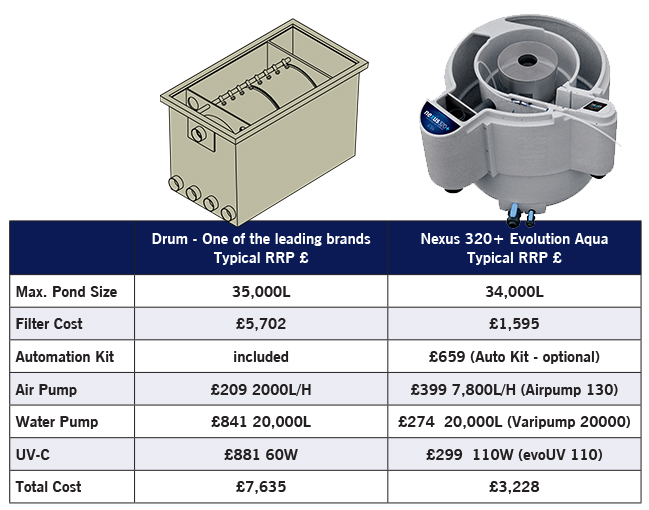
*Typical RRP cost from https://www.water-garden.co.uk - 19-07-23
*Filtration equipment listed as specified by manufacturer’s website 19-07-23
4. Running costs
When looking at the running costs of both types of filters what sets them apart is the fact that the Nexus only requires an air pump which serves the dual purpose of cleaning and providing air for the moving media bed.
Whereas a drum filter on the other hand consumes more energy due to the many mechanical components involved in their operation and cleaning process.
During their operation, the rotating drum, motor and electronics that drive it will consume more energy. When cleaning, the mechanism requires the need for an additional wash pump, typically high-voltage, which although will not be used for an extended period of time, it will be used frequently during the course of the day.
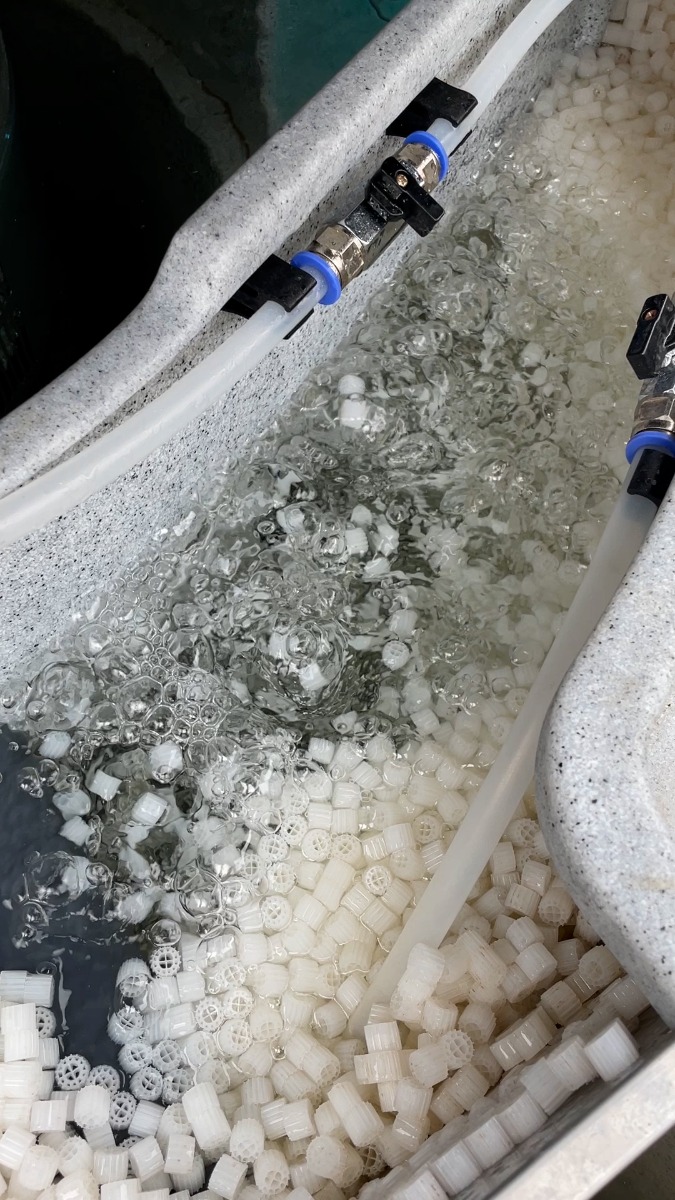
5. What can go wrong?
Drum filters are more complicated, they are automated to self-clean when needed and because they use more moving parts (motor, cleaning mechanism and electronics) than a Nexus filter, over time intrinsically drum owners will experience more issues with their filter which when they fail can have some devastating effects on a pond and can be expensive to fix.
Because today so many brands and models of Drum filters are available on the market, it is becoming increasingly difficult for the hobbyist to decide which one to choose from.
You will need to make sure that you get a drum filter at the right price for your budget and with the appropriate level of support, warranty, and availability of spare parts for peace of mind.
Built to last
Developed and manufactured by Evolution Aqua, the first Nexus filter was first introduced in the early 2000s. The brilliance of the Nexus is in its simplicity, effectiveness and reliability. The Nexus has no moving parts or electronics and as a result, is unlikely to fail.
Unlike the Drum filter, there is only one Nexus manufacturer based here in the UK. Arguably Nexus is the most successful and reliable Koi filter on the market available from a wide network of dealers around the world.
But in spite of its popularity and high performance the Nexus remain affordable, representing incredibly good value for the Koi hobbyist, so they have more money to spend on buying fish, the reason why you came to the hobby in the first place right?
If you need to scale up at a later date, when finances allow, you can easily add more K+ Media to increase the biological capacity of the Nexus. And you can also install the Automatic Cleaning System to have a self-cleaning, automated Nexus filter.
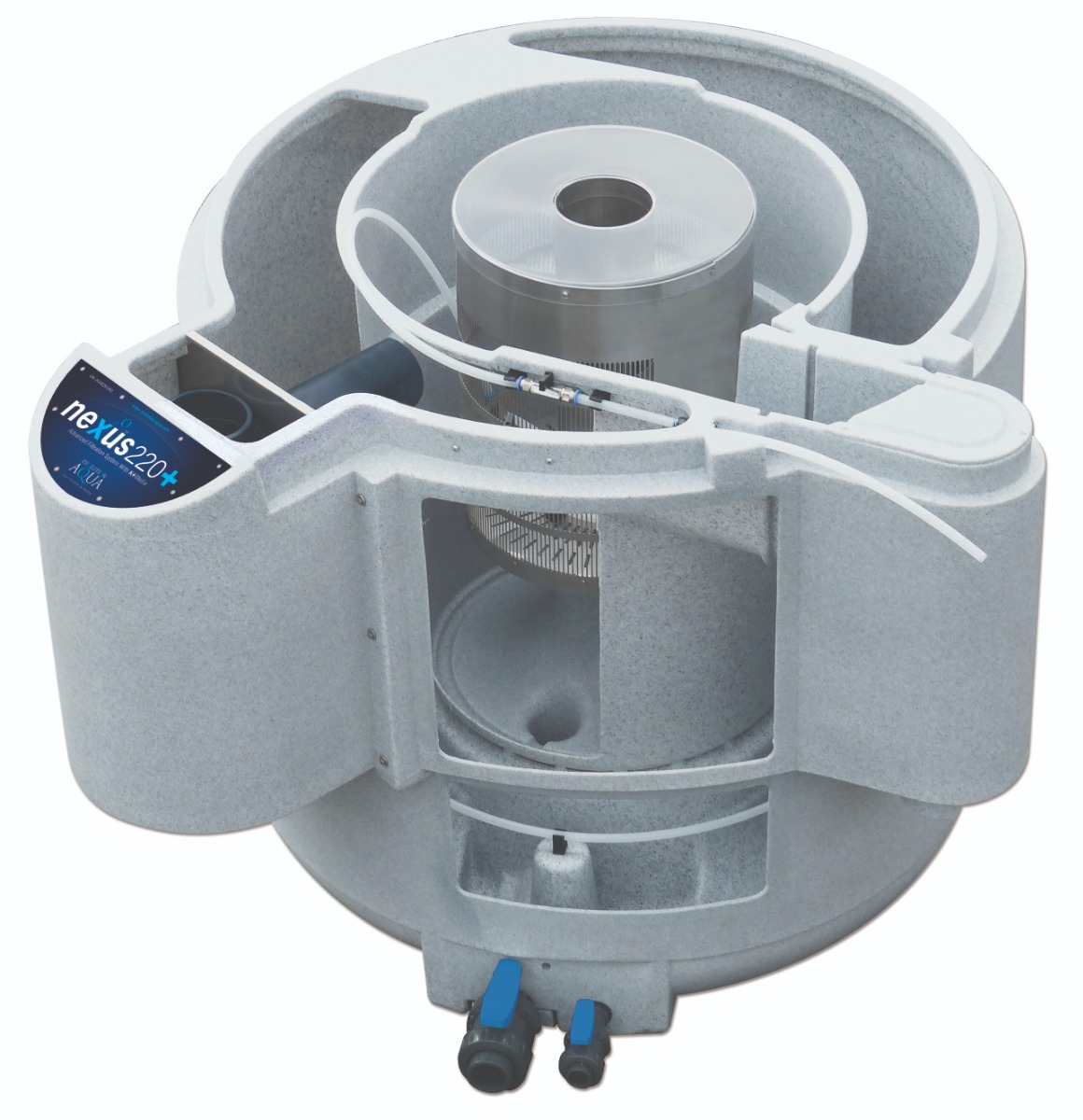
6. Availability and cost of spares
The cost and availability of spare parts for your filter is also an important factor of consideration so make sure to do your research.
- What spare parts are available for the filter?
- Where can I buy them from and what are their costs?
- Is there any supporting documentation and how-to videos from the manufacturer?
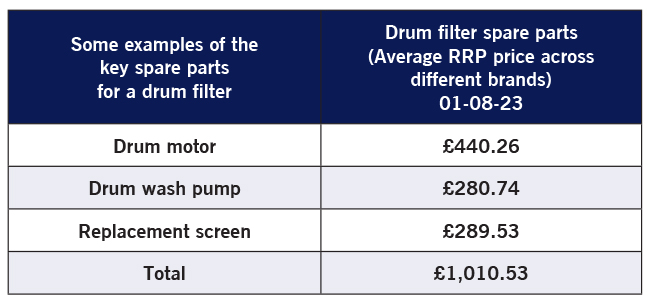
Nexus spares are available to buy from our dealers or direct from our online store at www.evolutionaqua.com
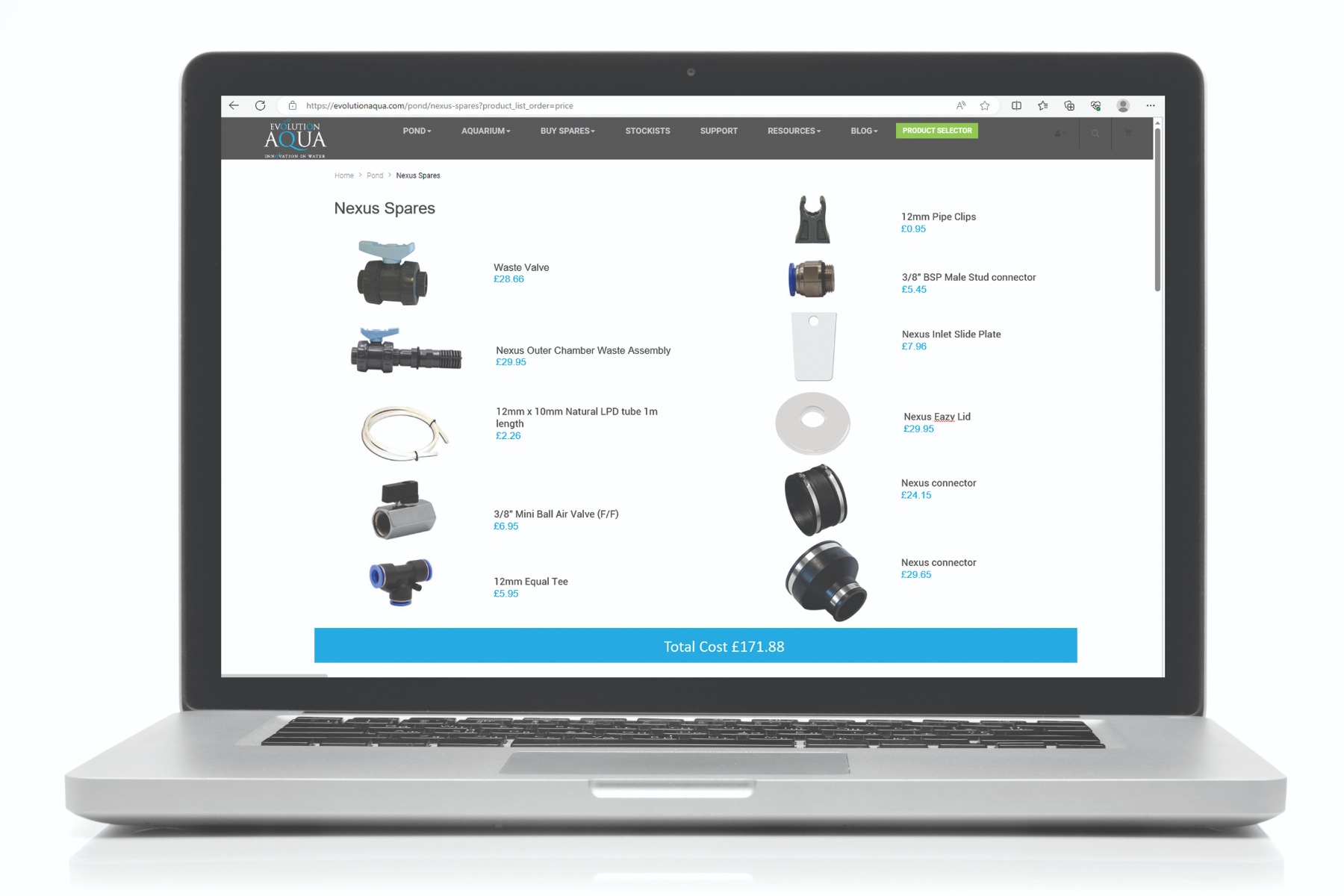
7. Begin with the end in mind
“Begin with the end in mind” is a quote from Dr. Stephen R. Cover and in the context of this article it means that at the beginning of your pond project, you would visualise yourself having your dream fish thriving in a great pond that you have designed. It is commonsensical but it's that simple really, this is your first step.
Next, you will need to plan and budget to make your project become a reality. This is where you will need to make decisions about what you buy and how much you are going to spend on the different elements of your pond project.
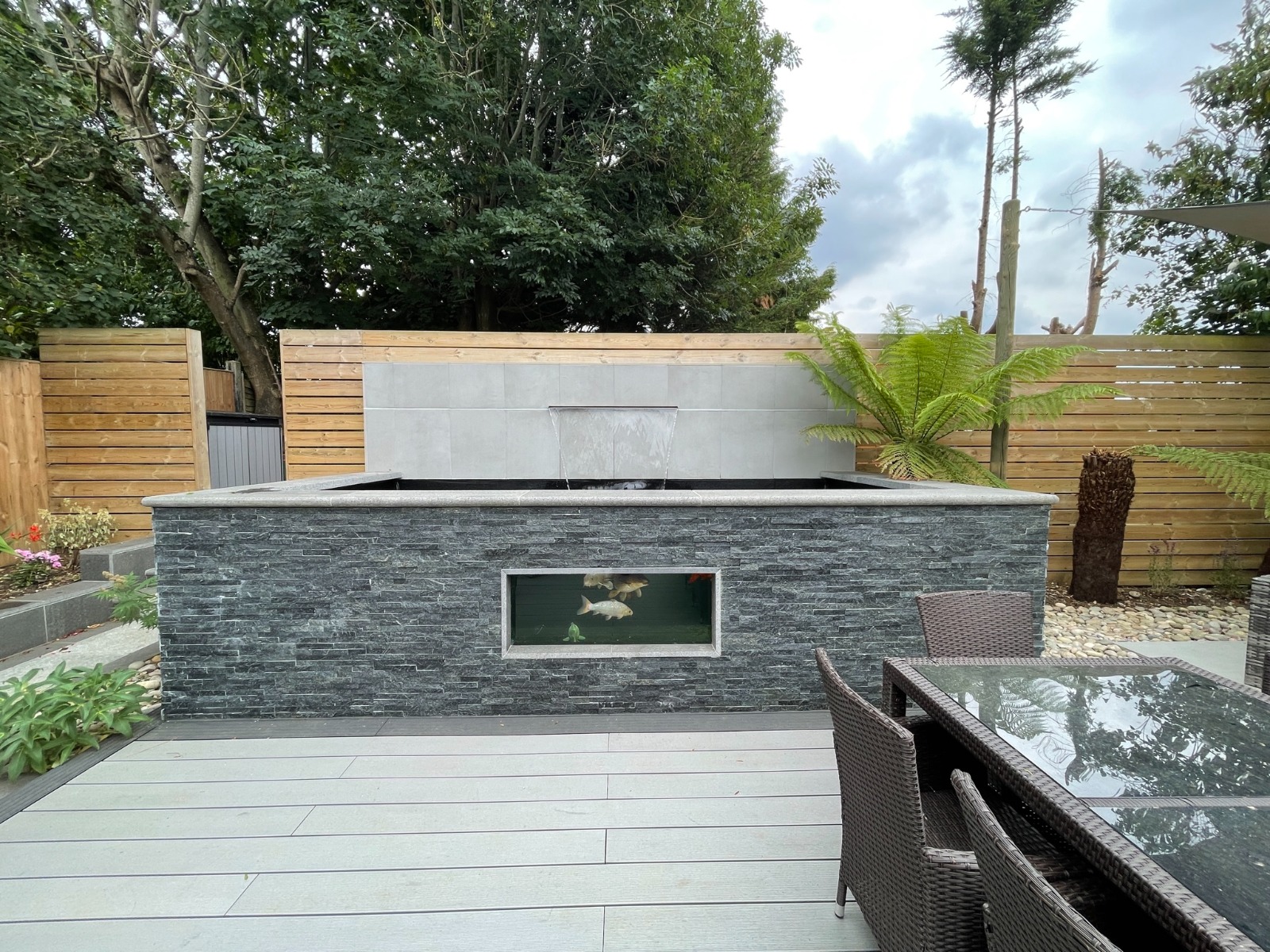
The aim of the #MoreMoneyForFish campaign is to raise awareness for cost-effective filtration like Nexus so fishkeepers can have some money left once they have built their pond to buy their dream fish, which ultimately is the end goal.
If you agree and support Nexus get involved with the campaign by using #MoreMoneyForFish on socials.